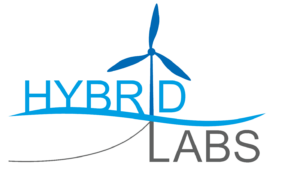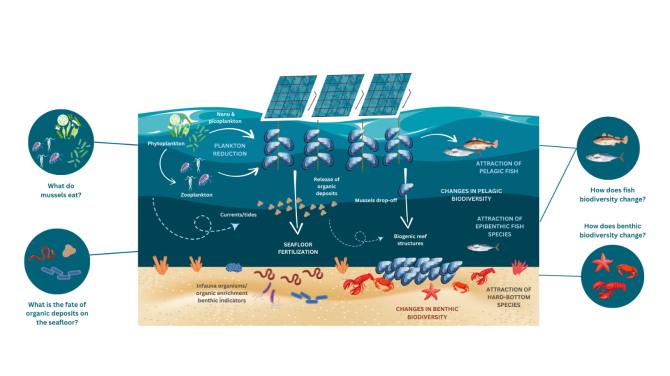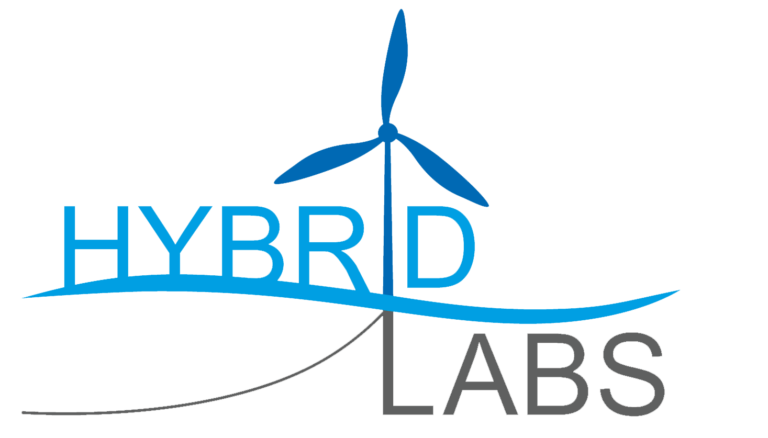
The concept of restorative nature-inclusive sea farming entails the cultivation of low-impact, low-trophic species (e.g., shellfish) that can yield environmental benefits, while providing a sustainable source of seafood. This novel aquaculture practice has the potential to be integrated with offshore wind farms to optimize the use of marine space and provide a positive environmental impact to the surrounding environment.
Due to the high hydrodynamic conditions, offshore (mussel) aquaculture has been associated with a lower environmental footprint than coastal aquaculture activities. Additionally, offshore shellfish aquaculture holds the potential for biodiversity enhancement, as it provides food and shelter for fish communities and macrofaunal benthic species, and for the ecological restoration of areas degraded by decades of intense fishing activities.
In the North Sea, the rapid growth of the offshore renewable energy sector presents new opportunities for the development of such nature enhancing, commercial activities. Co-locating mussel longlines between or underneath energy structures can provide a solution to issues such as space limitation and user conflicts. Furthermore, the rise of floating energy structures can support the expansion of the energy and aquaculture industries towards deeper and farther offshore locations.
As the sector is still in its infancy, further studies into the environmental impact and potential nature-enhancing effects of offshore shellfish farming is paramount for the socio-economic success of these restorative nature-inclusive farming initiatives.
Aim & Objectives
As part of the HybridLabs project, we will investigate the environmental impact and nature enhancement potential of offshore mussel farming alongside (floating) renewable energy structures in the North Sea.
This research will address the following objectives:
Methodology
The research will combine field and laboratory studies, utilizing established methods (stable isotope analysis, acoustics monitoring) alongside innovative methodologies such as environmental DNA (eDNA) barcoding or spectral flow cytometry. Furthermore, to comprehensively monitor the biodiversity effects of mussel farming in the field, a Biodiversity Sensing Box (https://www.wur.nl/en/project/fish-sensing-box.htm) will be deployed to collect (360-degree) videos, sound recordings, and eDNA samples. Such combination of methods will provide insight into the ecological role of cultivated mussels in the North Sea and yield a comprehensive overview of biodiversity changes around offshore mussel farms in the southern North Sea.
Contact: caterina.pezzola@wur.nl



Accelerating innovations in offshore renewables through data-driven hybrid labs.
@2025 HybridLabs